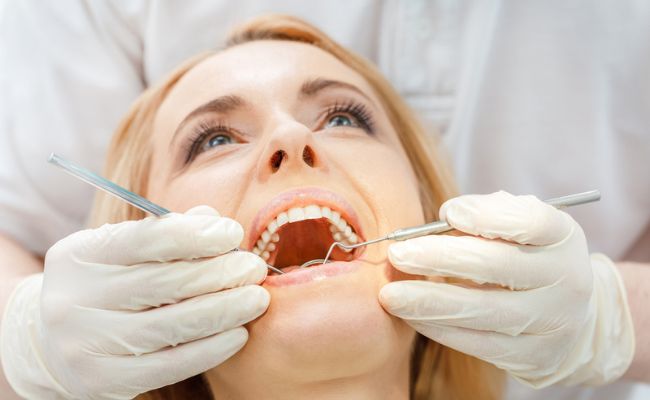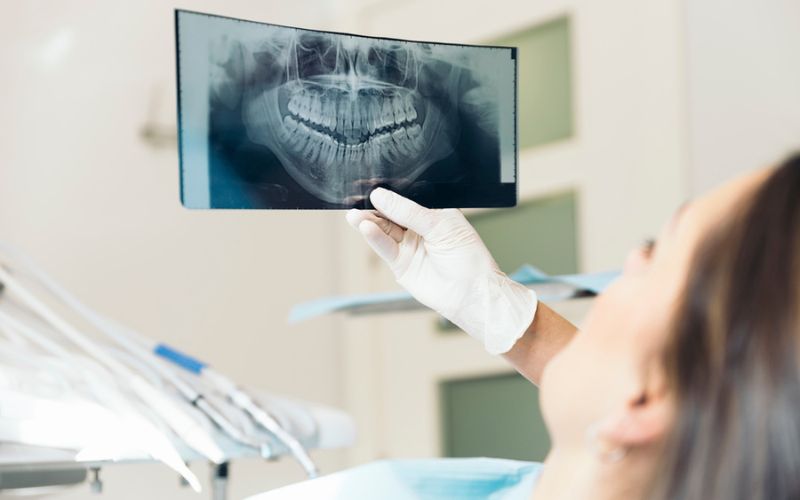Most people know oral hygiene is important, but may not realize just how important it is to your overall health and wellbeing. If you are in good health generally, and are diligently brushing and flossing, oral bacteria is usually controlled. On the other hand, with poor dental hygiene, bacteria can flourish, and poor oral health follows.
Table of Contents
ToggleKey Takeaways
- Maintaining good oral hygiene is not only essential for oral health but also impacts overall health and wellbeing.
- Daily care, including regular brushing, flossing, and using fluoride toothpaste, is vital for oral health. Additionally, scheduling regular dental exams and professional cleanings is equally important.
- Good oral hygiene is a preventative measure that helps avoid various oral health issues like gum disease, cavities, bad breath, and more.
- Regular dental visits allow for the early detection of oral health issues, enabling timely treatment and prevention of further complications.
- Poor oral hygiene can lead to gum disease, tooth decay, bone loss, and a range of dental concerns, increasing the risk of tooth and bone loss.
- There is a link between poor oral health and other diseases and conditions, such as stroke, cardiovascular disease, diabetes, and certain cancers.
- Regular dental visits and proper oral hygiene practices emphasize prevention, promoting good oral health and overall well-being.
What Is Good Oral Hygiene?
Oral hygiene is the practice of keeping your mouth, including teeth and gums, clean and healthy. There are two main ways to maintain good oral hygiene.
Daily Care
Brushing and flossing regularly, and properly, is an essential element of good oral hygiene. To practice good oral hygiene, using good technique can make a big difference. Using a fluoride toothpaste to help protect tooth enamel is also important. A mouthwash can help, too.
Together, this keeps teeth and gums clean, and helps to reduce plaque buildup. A healthy diet can also help support your daily efforts by providing adequate nutrition to support healthy teeth and gums, and by limiting sugary foods and drinks that promote harmful bacteria growth.
Dental Exams and Professional Cleanings
The second part of maintaining good oral hygiene, that is sometimes overlooked, is scheduling regular dental visits for professional cleanings and dental exams. Routine dental visits allow your dentist to examine your mouth fully, with diagnostics like x-rays as necessary. They provide your dental hygienist the chance to professionally clean your teeth and gums to remove tartar, which builds up when plaque is allowed to harden on the teeth.
Oral Hygiene Is Preventative
The key benefit of oral hygiene is that it is preventative. Proper oral hygiene works by preventing conditions that increase the risks of oral health issues. This is important, as preventing issues is always preferable to having to treat them.
This means it is possible to prevent gum disease, cavities, gum disease, bad breath and other health concerns before they happen.

Symptoms of Poor Oral Hygiene
Unfortunately, the effects of poor oral hygiene aren’t generally obvious until it has already started to cause issues. By paying attention to your oral health, noticing any issues as early as possible, and seeing your dentist regularly, you can minimize the negative impacts. Getting treatment as early as possible means the problem is not allowed to get any worse.
If you have chronic bad breath, toothache or loose teeth, bleeding, swollen or receding gums, mouth sores, jaw pain, facial swelling, or similar issues, contact your dentist right away.
Detection of Issues Before Symptoms
Regular dental checkups, on the other hand, allow your dentist to spot any potential problems long before you would have noticed any symptoms. With digital x-rays your dentist is able to see cavities that are in between your teeth and cannot be seen with your eyes.
Avoid Oral Health Problems
Poor oral hygiene is associated with a range of oral health problems. When teeth and gums are not kept clean properly, it allows a range of issues to develop, as plaque buildup is allowed to develop and bacteria and infection can establish more easily. Risks of tooth decay and gum disease, as well as other dental concerns, will increase.
Gum Disease

Plaque, tartar, and bacteria increase the risk of gum disease. Left untreated, gum disease will worsen, eventually leading to receding gums, tooth loss, bone loss, and allowing the infection to spread further. Good oral hygiene reduces the tartar and bacteria, to prevent this condition.
Tooth Decay
Just as tartar and bacteria cause issues for your gums, they also lead to tooth decay and cavities. This can eventually lead to decay so severe that the structure of the tooth is weakened, and it cannot be saved, resulting in tooth loss and likely bone loss too.
Bone Loss

Gum disease and tooth loss leads to bone loss. With this, other teeth can become loose and fall out, too, and the jaw bone will start to lose its shape. The best way to avoid this is to prevent the conditions that lead to it, through proper oral hygiene.
Early Detection and Treatment
Any oral disease or condition that does develop can be identified earlier for easier treatments that are likely to be more successful.
With x-rays, a dentist can notice the tiniest sign of tooth decay, before you would have noticed any symptoms, so the tooth requires less treatment to restore it. Gum disease is noted before it progresses to periodontal disease, a severe form that cannot be cured.
Other diseases and conditions, including oral cancer, can be discovered at the earliest possible stage to start treatment earlier.
Good Oral Health is Linked to Reduced Risks of Other Conditions
Good oral hygiene supports good oral health; however, the benefits may be even more far-ranging. Research suggests that there is a link between poor dental health and other diseases and conditions.
It has been linked to increased risks of stroke, cardiovascular disease, diabetes, and even low birth weight if pregnant. There are also studies indicating an increased risk of cancers, including breast and lung cancer.
This is most likely because the uncontrolled bacteria from oral infections travel through the bloodstream, causing infection and inflammation throughout. This can also result in sepsis, bacterial pneumonia, and infective endocarditis.

FAQs on The Importance of Oral Hygiene
1. What is the importance of good oral hygiene?
Good oral hygiene is vital in maintaining a healthy mouth, including your teeth and gums. Regular brushing and flossing help control oral bacteria, preventing plaque buildup, gum disease, and cavities. Moreover, good oral health has been linked to reducing the risks of certain health conditions, such as stroke, cardiovascular disease, and diabetes.
2. How can one practice good oral hygiene?
Practicing good oral hygiene includes regular brushing and flossing using proper techniques and fluoride toothpaste, which protects tooth enamel. Incorporating a mouthwash can also be beneficial. Eating a healthy diet and limiting sugary foods and drinks can help support oral hygiene efforts. It’s equally important to schedule regular dental visits for professional cleanings and exams.
3. What are the signs of poor oral hygiene?
Symptoms of poor oral hygiene often aren’t obvious until issues have already started. These may include chronic bad breath, toothache or loose teeth, bleeding, swollen or receding gums, mouth sores, jaw pain, and facial swelling. Regular dental checkups can help detect these problems before they become severe.
4. How does good oral hygiene prevent oral health problems?
Good oral hygiene prevents the buildup of plaque and tartar, reducing the risk of gum disease and tooth decay. By preventing these conditions, it also reduces the risk of more severe issues such as tooth loss, bone loss, and increased risks of other health conditions.
5. What is the link between oral health and overall health?
Research suggests that good oral health is linked to better overall health. Poor oral health has been associated with increased risks of stroke, cardiovascular disease, diabetes, and even some cancers. It is believed that uncontrolled bacteria from oral infections can travel through the bloodstream, causing infection and inflammation throughout the body.
Emphasize Prevention for Good Oral Health
Good oral hygiene benefits more than just your mouth; it’s linked to your overall health too. Research shows poor dental health increases the risk of diseases such as stroke, cardiovascular disease, diabetes, and certain cancers.
Bacteria from oral infections can travel through the bloodstream, causing wider health issues like sepsis, bacterial pneumonia, and infective endocarditis. Regular dental checkups can help prevent these.
Prioritize your oral health with Onyx Dental, your trusted dentist in Erin Mills, conveniently located at 2555 Erin Centre Blvd Unit 12, Mississauga, ON L5M 5H1. Contact us at (905) 567-4999 to schedule your comprehensive checkup and professional cleaning today.



